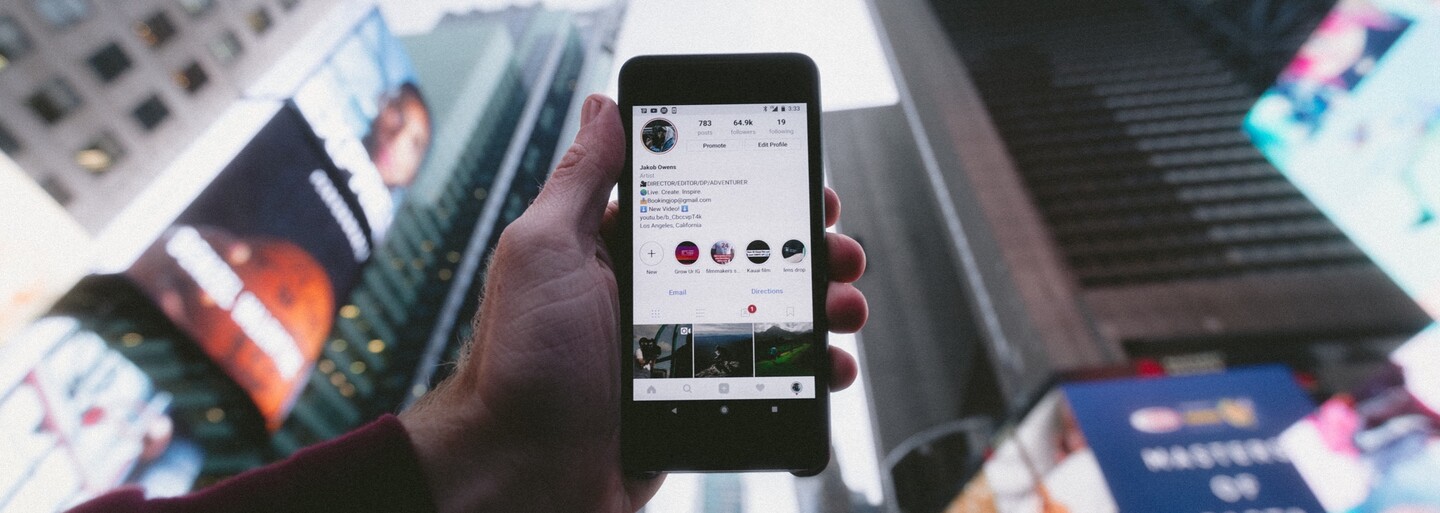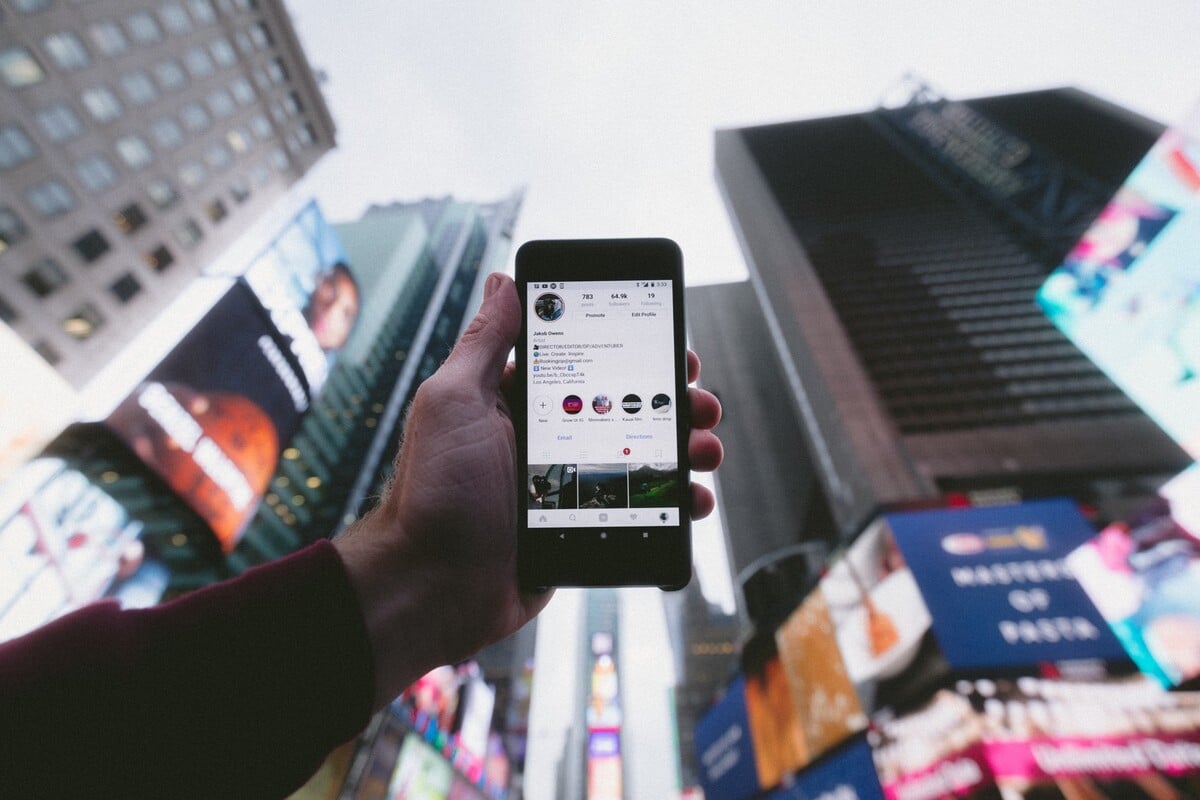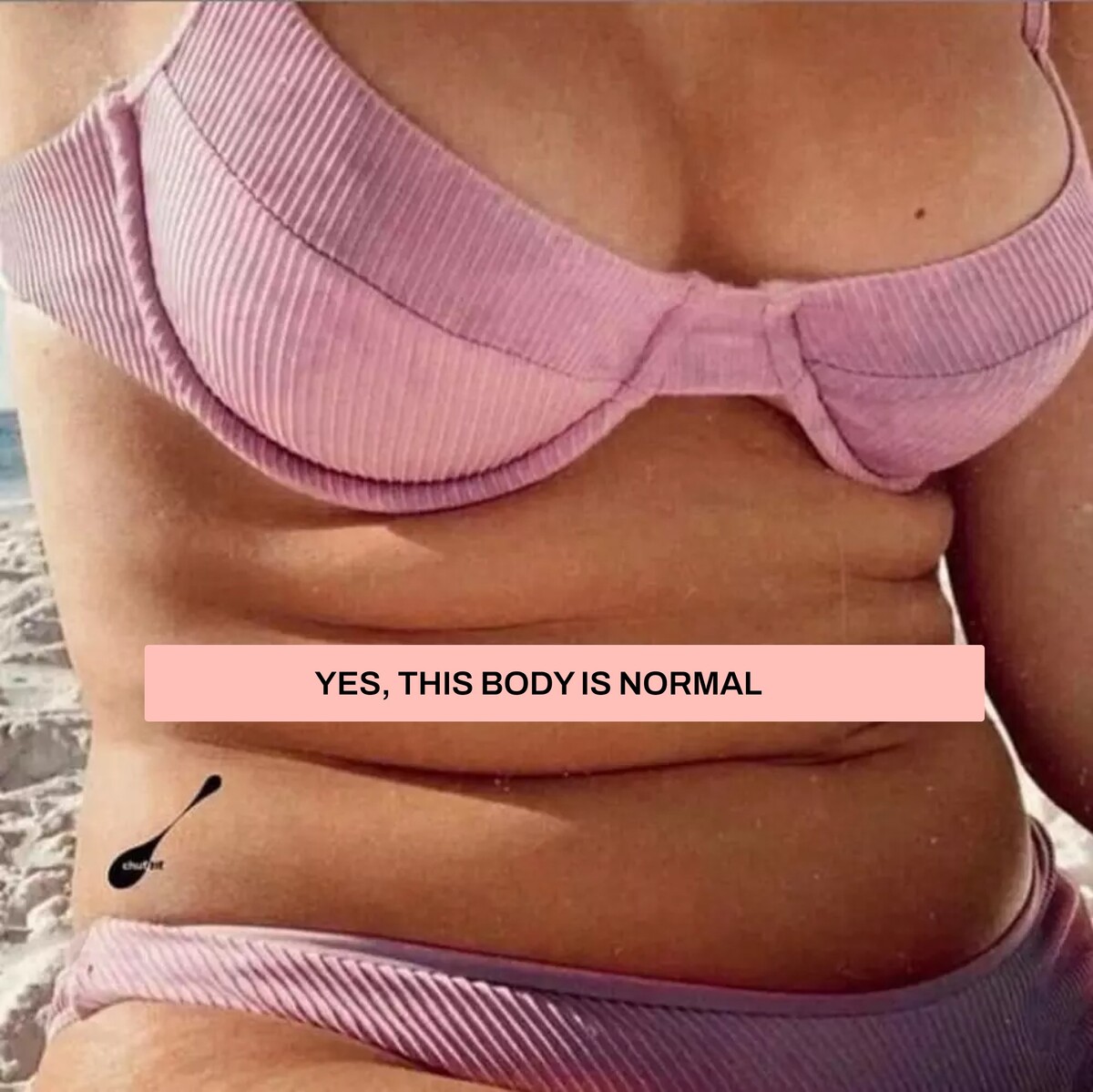 In Denmark, You Can Ski On A 450 Meter Long Roof Of A Waste Incinerator
In Denmark, You Can Ski On A 450 Meter Long Roof Of A Waste Incinerator
In Denmark, You Can Ski On A 450 Meter Long Roof Of A Waste Incinerator
In Denmark, You Can Ski On A 450 Meter Long Roof Of A Waste Incinerator
On Instagram: How to Set Up Your Profile to Optimise Your Mental Well-being and Why is This Platform So Toxic?
You may not be surprised that the use of social media is related to young people's mental health problems. We looked into ways to protect yourself.
If problems persis, please contact administrator.

You may not be surprised that social media lead to mental health problems in younger people. For teenagers specifically, Instagram causes problems. Even Facebook itself repeatedly came to this conclusion, after commissioning several studies, looking into how time spent on a social media affect the behaviour and mental state of young people.
According to scientists, social media work as an addictive product, providing users with only the best photos, and unrealistically adjusting the perception of the real world. (Surprise surprise.)

However, nothing in the world is black and white and the mental health struggles of many young people cannot be blamed on Instagram alone. So what is it about the platform where everyone publishes only the best photos from the best moments of their lives? Is it toxic or are the people toxic while on it?
Bad, bad Instagram!
Extensive research findings on the topic have been published by The Wall Street Journal (WSJ). Studies look at the impact of Instagram on young people, especially girls, and have identified specific links to various mental health problems. The results of the scientists, who work with Instagram data (and thus ensure more accurate conclusions), are frightening.
Nearly half of the users in the US and the UK who said they felt "unattractive", stated, that the feeling appeared when they started using Instagram. According to surveys, the social media platform contributes to a higher level of anxiety, depression and also tendencies to self-harm or suicide.
As many as 32% of girls and 14% of boys feel worse about their body after using Instagram. These feelings can deepen, and over time grow to become body image issues, which can result in several mental disorders, including life-threatening eating disorders. According to WSJ, the individual functions of Instagram "make each other worse and together create a perfect storm" for the mental health of users.
The worst thing about this must be, that Facebook knew about the problem all along. Mark Zuckerberg was aware of this at the time of his testimony before Congress. On the other hand, these findings mean that Instagram does not create innovative rules and changes from thin air, but makes decisions based on hard data. That's why they've been successful in implementing some improvements that really help users.
It’s bad without Instagram, it’s even worse with it
"We know people are dying because of car accidents," states head of Instagram Adam Mosseri for Recode Media. "But the value cars create in this world far outweighs the damage they do."
According to the head of the platform, who strives for clear communication on his Instagram account, social media are similar to cars in this respect. There are clear risks to their use, but they bring so many benefits that they are worth the risk.
Although Šárka Šuvadová,a psychologist, does not agree with the comparison of Instagram to cars, she thinks that the social network is not as bad as the WSJ presents. This disagreement is based especially on the context of all the issues that young Instagram users report. These roots are all offline, in their "normal" life.
"First of all, we don't know all the data that Facebook examined, and we don't know exactly how many people they asked and what medical predispositions they had, or what background they came from," warns the psychologist. However, she did tell Refresher that watching content on Instagram, where we have long seen an idealised "pattern" of beauty or standard of living, can poorly influence our mental health.
According to her, it can set a new "standard" or norm in our mind, to which we will subconsciously begin to compare ourselves. Naturally, this can have negative consequences.
However, according to the expert, people who have shown a higher level of anxiety or depression, or greater hatred for their appearance, have medical predispositions for these conditions.
This means that self-image disorders or self-deprecating thoughts could have also developed under the influence of other inputs; the input just happened to be Instagram, as this is the place, where young people became active. (According to the Omnicore Agency, there are nearly 700 million people aged 18 to 34 on Instagram, almost half of whom are under the age of 24.)
The psychologist also mentions studies in which even healthy people (without predispositions to mental disorders) suffer the negative consequences of long-term monitoring of filtered content, in which they see, for example, only the perfect bodies of models or the "flawless" life of influencers. However, how we process these things in private reflects not only the toxicity or unsuitability of Instagram, but also our upbringing, the society in which we live, or the values we profess.

We have problems, even without the Internet
Simply put, Instagram it itself probably won't create all of your mental health issues, but it can definitely contribute. It is about the overall quality of your life, your relationships, your knowledge of psychology, all of which helps you become independent, confident and healthy.
According to Magdalena Szulc, a member of the Facebook communication team, the company stands behind their research. She says that WSJ selected mainly examples and excerpts that put the social network in a bad light.
"(Research) demonstrates our commitment to understanding the complex and challenging issues experienced by young people and provides information on all the steps we are taking to help those who are facing these challenges," Szulc commented for Refresher.
In other words, she repeated what Mosseri has been saying for a long time: not even scientists can agree on whether social media are good or bad. "They can be good or bad. At Instagram, we look at the benefits and risks of our work. We are proud that our platform can give a voice to those who are marginalized, and that it can help friends and relatives stay in touch in every corner of the world and that it can encourage social change. But at the same time, we know that this can be a place where people have negative experiences," says Szulc.
However, according to the authors of the WSJ article, this "ambiguity" has long since been resolved. According to their findings, Facebook not only knows that social media are harmful, but it also knows, very precisely, to what extent and on what target group can Instagram do the most damage.
However, as Szulc argues, according to this study, more than 80% of teenagers in the USA said that social networks make their lives better and that they feel better connected with their friends. A representative of Facebook says that since anxiety or negative comparisons also exist outside the Internet, it is natural that cases also appear on social media.
Do it yourself, do it better
The truth is that Instagram has been working to improve over the last three years or so, and new options and rules have been added to limit cyberbullying or self-harm content. They hide words commonly associated with bullying or offer the opportunity to hide the number of likes and thus avoid the need to compare.
Some keywords (such as anorexia, suicide, or, in the last two years, covid-19) can link people to local organizations now. This means, that coming across such content, you will be displayed a FAQ page with information and a link to a local helpline, health care organization or other helpful resource.
According to Szulc, Instagram is currently working on the possibility of showing you a different type of content than the one you regularly consume when it comes to body image. So far, this algorithm is not complete, so at the moment, after liking a few poor bodies, you will be offered hundreds of others, after saving one "skinny recipe", dozens of diets will appear and when commenting on several influencer posts, you will see only more similar photos in your explore feed.
– Set your "limits". These will automatically hide comments and private messages from people who are not following you or have only recently started following you. It can help prevent a wave of hate, especially after some bad publicity (but it will also prevent a large number of messages from strangers after a positive experience, for example if you win a public tender). More information on Instagram HERE.
– Hide messages that may by harmful you. Through the possibility of hidden words, you can filter keyword and messages commonly associated with bullying. In general, you can turn off DMs from strangers (whom you don't follow) completely. More information on Instagram HERE.
– Control the comments. You can add emoticons, words or entire phrases to the list of hidden words, which will then not appear in the comment section below the post. The commentator will not know about this and at the same time, will receive a notification if his comment violates the general conditions of Instagram. You can also prevent comments from specific people in your settings.
– Clever block: the "restrict" function works as an small block. The person will see their own comments, but no one else will see them on Instagram.
– You will soon have the option of not allowing someone you have blocked in the past, to follow you or write to you from a new account - it will be less likely for someone to stalk you by creating new and new accounts.
You can find all these settings in the app.
Click on Your profile -> Settings -> Privacy.
Verdict: Innocent?
Facebook works like any other company: the main goal of its owner and shareholders is to earn more money each year. Each new social network will sooner or later follow the same trajectory and do anything to increase the number of users and thus their profits. New platforms are therefore not likely to be any different.
In addition, thanks to internet availability, social media can have so many users that they compete with whole countries with hundreds of millions of inhabitants, recalled editor Rebecca Jennings in her newsletter The Goods by Vox. So Facebook essentially occupies role similar to the role of parliament of a country, but it is far from having such responsibilities, we can’t choose the people running it and only few people control it properly.
Although there are efforts to regulate social media at European Union level or through local media or cyberbullying laws, it is impossible to think of everything. Jennings therefore asks a difficult question: Isn't the only way to prevent this, to stop companies like Facebook from growing to such proportions?
However, demonising social media is not the answer either, and restricting the companies that have already grown globally would probably provoke a huge wave of criticism. It may be more appropriate to ask where are we making mistakes while raising children, in our school curriculums or in interpersonal relationships, when we cannot be kind to each other on the Internet and can’t see our own worth, through the shine of Instagram stars.
Because the fact, that a particular social media platform accelerates the development of mental problems or the fact that we blame it for causing this, is far from proof, that it’s the platform’s fault. On the contrary. It is a proof that humanity has a problem.
We can just see it more clearly on the Instagram.
If problems persis, please contact administrator.














